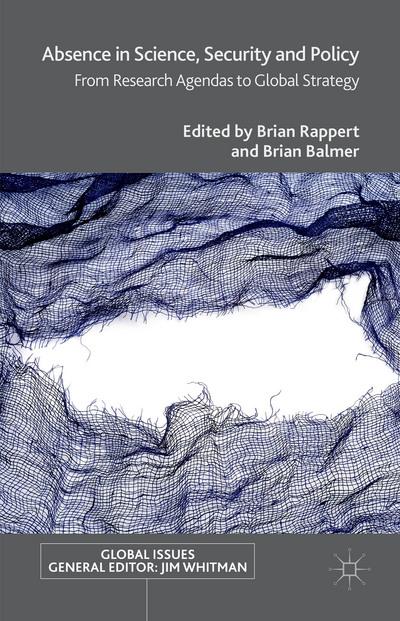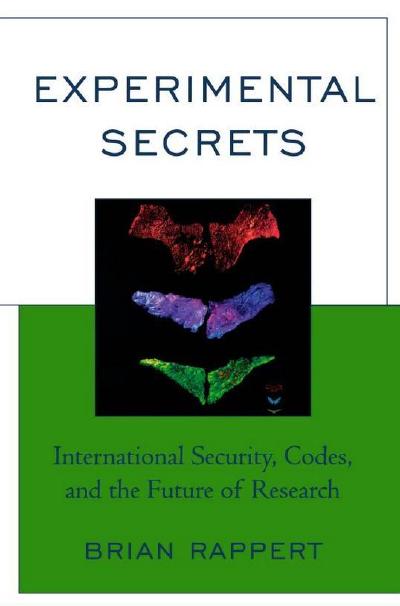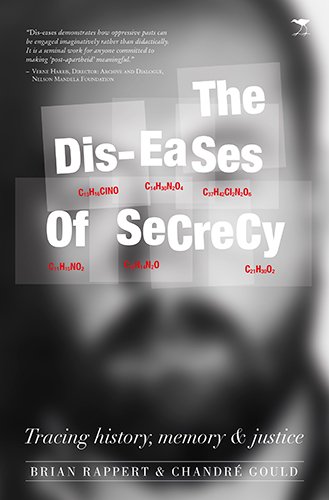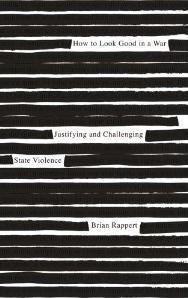Overview
 Much of my recent research has examined how the use of force is depicted and defended. Within that I seek to address questions such as: How is organized violence justified as an instrument of statecraft? How does the restriction — and release — of information serve this end? How is ‘ignorance’ about the conduct of war produced?
Much of my recent research has examined how the use of force is depicted and defended. Within that I seek to address questions such as: How is organized violence justified as an instrument of statecraft? How does the restriction — and release — of information serve this end? How is ‘ignorance’ about the conduct of war produced?
Central to this work has been the call to re-think common approaches to transparency and secrecy, disclosure and concealment, as well as knowledge and ignorance. Rather than treating these pairs as opposites, they often co-exist, blur into each other, lead to each other, and get produced from each other. As a result, I advocate that it is necessary to go beyond traditional calls for greater openness and information as means of getting nations to account for their actions.
My research into security and diplomatic communities — where questions of disclosure and concealment loom large — has led me to reflect on the methodological and epistemological issues associated with investigating and writing about secrecy and ignorance. As part of this I have sought to develop novel intellectual ties between fields such as security studies, ethnography, and autobiography. This has been done in an effort to appreciate how accounts by social researchers are themselves characterized by absences; absences resulting from what cannot be told because it is not known and from what cannot be repeated because it should not be told. I am interested in examining the problems associated with undertaking research in conditions of secrecy in order to ask how the missing could figure as a creative resource.
 For instance, one of the topics I have investigated along these lines is the former secret Apartheid chemical and biological weapons programme (titled Project Coast). Through the endeavours of the Truth and Reconciliation Commission, an extensive legal trial, and various other investigations, the activities of the programme have become treated as emblematic of the perversities of a former time. And yet, each attempt to determine and remember what took place has been structured and delimited by the very investigations that enabled it. Documentary traces and fragments compiled to date signals much still remains unknown and perhaps will never be widely appreciated. As well, despite widespread public discussion about the project, its offensive intentions have never been officially acknowledged by South Africa and other nations. Many have found reason to call for the past to be left in the past.
For instance, one of the topics I have investigated along these lines is the former secret Apartheid chemical and biological weapons programme (titled Project Coast). Through the endeavours of the Truth and Reconciliation Commission, an extensive legal trial, and various other investigations, the activities of the programme have become treated as emblematic of the perversities of a former time. And yet, each attempt to determine and remember what took place has been structured and delimited by the very investigations that enabled it. Documentary traces and fragments compiled to date signals much still remains unknown and perhaps will never be widely appreciated. As well, despite widespread public discussion about the project, its offensive intentions have never been officially acknowledged by South Africa and other nations. Many have found reason to call for the past to be left in the past.
A danger with examining an activity like Project Coast in this situation is getting swept away by the mystique and spectacle that defines it. Secrecy was not only central to how the programme was justified, undertaken and covered-up, it continues to be central to how it is milled, ignored, and mystified today. Rather than being swept away, my hope is to become receptive to the wantings, aversions, commitments and fascinations associated with attempts to make open what was hidden.
Through projects funded by a Newton Advanced Fellowship as well as an ESRC Accelerator Impact Award, Chandré Gould and I have sought to find ways of engaging diverse audiences in questions about the continuing relevance this past programme for South Africa and international diplomacy. For instance, we worked with Verne Harris (Nelson Mandela Foundation) and Kathryn Smith (Stellenbosch University/Liverpool John Moores) to put on an exhibition titled “Poisoned Pasts” that was on display at the Nelson Mandela Foundation and the Steve Biko Centre. We have written a book titled Dis-eases of Secrecy: Tracing History, Memory and Justice that examines how attending to what is missing from history can enable new possibilities for thought and action.
My initial focus on the machinations of war and diplomacy has recently given way to a much wider investigation of how that what I didn't say or didn't know functions as part of the social and political life as well as scientific research.
Selected Publications
 (For a complete listing of my publications click here)
(For a complete listing of my publications click here)
- Rappert, B. 2020. Secrecy Index of Evidence.
- Rappert, B. 2018. Leaky Revelations: Committments in Exposing Militarism Current Anthropology https://doi.org/10.1086/700649.
- Rappert, B. and C. Gould 2017. Dis-eases of Secrecy: Tracing History, Memory and Justice Johannesburg: Jacana, pp 288.
- Leonelli, S., B. Rappert, G. Davies. 2017. Data Shadows: Knowledge, Openness and Absence (Editorial to special issue). Science, Technology, & Human Values 42(2): 191–202.
- Rappert, Brian. 2017. Brian Martin’s The Deceptive Activist: A Review Social Epistemology Review and Reply Collective 6, no. 10: 52-55.
- Rappert, B., G. Colombetti, and C. Coopmans. 2017. What is Missing from Contemplative Neuroscience? Journal of Consciousness Studies 24 (5-6): 199-225.
- Rappert, B., C. Coopmans and G. Colombetti 2016. Meditations on Silence: The (Non-)Conveying of the Experiential in Scientific Accounts of Buddhist Meditation. In: Mellor, F. and S. Webster (eds), Silences of Science. Abingdon & New York: Routhledge, pp 193–217.
- Rappert, B. and B. Balmer 2015. Concluding Absences. In: Rappert, B. and B. Balmer (eds), Absence in Science, Security and Policy. London: Palgrave.
- Rappert, B. 2015. Sensing Absence. In: Rappert, B. and B. Balmer (eds), Absence in Science, Security and Policy. London: Palgrave.
- Rappert, B. and C. Coopmans. 2015. ‘Views of “Within”? Science, Buddhism and the Ineffable in Representations of Meditation’ Podcast of Presentation to Asia Research Institute (National University of Singapore) 13 August.
- Rappert, B. and C. Coopmans 2015. On conveying and not conveying expertise. Social Studies of Science 45(4): 611–619.
- Rappert, B. and B. Balmer (eds) 2015. Absence in science, security and policy: From research agendas to global strategy. London: Palgrave Macmillan. Read the Introduction.
- Rappert, B. and B. Balmer (2015). Ignorance is Strength? Intelligence, Security and National Secrets. In: Gross, M. and L. McGoey (eds), Routledge International Handbook of Ignorance Studies. London: Routledge.
- Dymond, A. and B. Rappert 2014. Policing Science: The Lessons of Taser. Policing: A journal of policy and practice 8(4): 330–338.
- Rappert, B. 2014. Present Absences: Hauntings and Whirlwinds in -Graphy. Social Epistemology 28(1): 41–55.
 Rappert, B. and W. Bauchspies 2014. Introducing Absence. Social Epistemology 28(1): 1–3.
Rappert, B. and W. Bauchspies 2014. Introducing Absence. Social Epistemology 28(1): 1–3.- Rappert, B. and C. Gould 2014. Biological Weapons Convention: Confidence, the prohibition and learning from the past. July ISS Paper 258.
- Rappert, B. 2014. Why has not there been more Research of Concern?. Front. Public Health 2:74. doi: 10.3389/fpubh.2014.00074.
- Gould, C., V. Harris, B. Rappert and K. Smith 2014. The Presence of the Past: Re-engaging the Legacy of South Africa's Chemical and Biological Warfare Programme. Nelson Mandela Foundation News 1 October.
- Rappert, B. 2013. Introduction: Ethics as…. In: Rappert, B. and M. Selgelid. (eds), On the Dual Uses of Science and Ethics: Principles, practices, and prospects. Canberra: Australian National University E Press, pp 349–379.
- Rappert, B. 2012. States of Ignorance: The Unmaking and Remaking of Death Tolls. Economy and Society 41(1): 42–63. For the FoI requests informing this article, see: [Set 1] [Set 2] [Set 3]
- Rappert, B. 2012. How to Look Good in a War: Justifying and Challenging State Violence. London: Pluto.
- Rappert, B., R. Moyes, and A. N. Other 2011. Statecrafting Ignorance: Strategies for Managing Burdens, Secrecy, and Conflict. In: Maret, S. (ed.), Government Secrecy (Research in Social Problems and Public Policy, Volume 19). London: Emerald, pp 301–324.
- Rappert, B. 2010. Revealing and Concealing Secrets in Research: The Potential for the Absent. Qualitative Research 10(5): 571–588.
- Rappert, B. 2009. Experimental Secrets: International Security, Codes, and the Future of Research. New York: University Press of America. Read the Introduction.